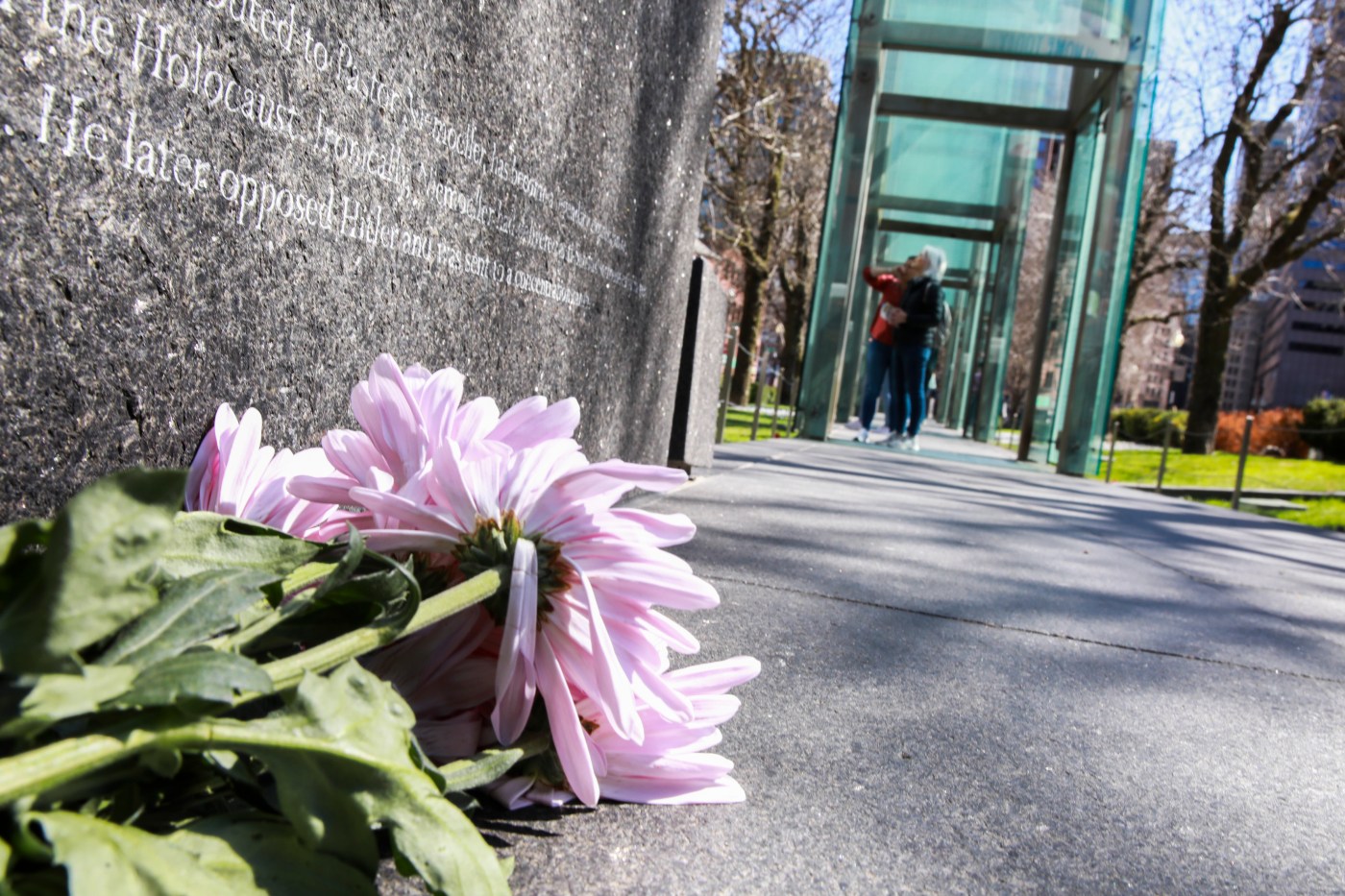
Kirsten: Colleges must remember how Holocaust started
While Columbia University permanently removed three deans from their posts, the texts released this month by the House Committee on Education and the Workforce only further revealed the anti-Jewish prejudice ingrained in many American universities.
At a May 31 panel at Columbia titled Jewish Life on Campus, after Orly Mishan, a daughter of a Holocaust survivor, described how her own daughter “was hiding in plain sight,” Susan Chang-Kim, vice dean and chief administrative officer texted colleagues, “I’m going to throw up.” Associate Dean Cristen Kromm responded with vomit emojis and “amazing what $$$$ can do.”
This after some Columbia demonstrators crossed a line from peacefully protesting the horrific situation in Gaza to glorifying Hamas’ violent ideology, chanting, “Burn Tel Aviv to the ground,” “Hamas we love you, we support your rockets, too!”, “10,000 (times) –– the 7th of October is going to be every day for you.”
As the daughter of a Holocaust survivor, I was deeply troubled when one student stood next to Jewish students holding a sign: ‘Al Qassam’s (military wing of Hamas) next target.’ These slogans and deep-rooted anti-Jewish stances at universities only escalates hate and does nothing to encourage dialog, or help the hungry in Gaza.
Over 500 Jewish students signed a letter outlining how Columbia continually brushed off their safety concerns, yet at the panel, Chang texted two deans, “coming from such a place of privilege.” This not only belittled Jewish student’s concerns about anti-Jewish hate and needing safe areas, but echoed views prevalent today in educational institutions –– views that attempt to erase history given Jews were nearly exterminated by race laws and white supremacy. That very history has shown hate-based words lead down a slippery slope of normalization, dehumanizing others, then violence.
In fact, the ‘final solution’ to the ‘Jewish problem’ began in academia. At German universities, there were anti-Jewish lectures, articles, and songs in student fraternities. Long before Hitler invaded, Polish universities were hotbeds of antisemitism. Like Columbia and other American universities, they imposed quotas limiting Jewish students. They segregated lecture halls. At my grandfather’s university, students herded Jews into courtyards and slashed them with razors. Even after they pushed Jews out of a third-floor window, faculty and police took no action.
Today, I see the earmarks of history repeating itself. As in the 1930s, we live in an identity-focused culture that divides people using binary terms: left or right, pro-Palestinian or pro-Israel, oppressor or oppressed.
Rather than cultivating division, university faculty should embrace the complexity of history, encourage students to question and hold multiple truths simultaneously, and most importantly, to develop empathy. They can provide safe spaces and encourage dialogue between students of all ethnicities. They can call for an end to the war and demand Hamas release hostages at the same time. They can advocate for a Palestinian state alongside an Israel where all people feel safe.
My plea to faculty and the students they serve is to parse history and world events from a range of viewpoints, not just from within echo-chambers at universities that emphasize either-or identity frameworks. I beg them to choose empathy –– for the mother in Gaza wailing over her dead child and for anguished Israeli families losing hope for children held hostage by Hamas –– instead of seeing the ‘other.’ Ahmed Fouad Alkhatib, a Middle East political analyst and US citizen from Gaza, who despite losing 31 family members in the current conflict, offered “extra love & compassion to the hostages & their families who’ve endured unimaginable suffering,” while advocating for coexistence, and the safety and dignity of his people.
I would not exist if not for the empathy of strangers. The woman who hid my mother and her parents in her attic during WWII and the Catholic sisters who later hid and cared for my toddler mother, saw a hungry, ill child –– not just a ‘Jewish’ child. Empathy saved my mother’s life, and thus mine.
Only weeks before the Columbia text exchanges, one student chanted at Jewish students, “go back to Poland!” Others yelled, “go back to Europe.” After the US Army liberated my grandfather from Dachau, he vowed never to return there. “No one of my friends is left. All of them are in the crematorium,” he said in an interview filmed days after liberation.
Historian Hannah Arendt posits that totalitarianism roots itself in divided societies where individuals fueled by anger and a lack of connection yield to collective action. Faculty and students must turn back from this slippery slope. We know where it leads.
Karen Kirsten is an Australian-American Holocaust educator and the author of the soon-to be-released book, “Irena’s Gift: An Epic WWII Memoir of Sisters, Secrets, and Survival.” (Kensington/Penguin)
“Irena’s Gift,” by Karen Kirsten. (Photo courtesy)


